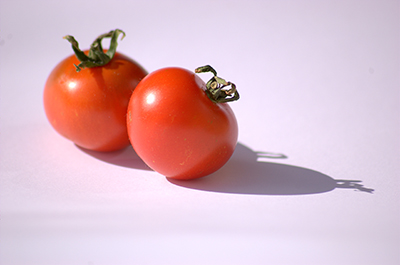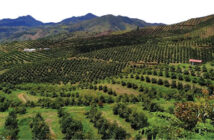By Carol Barnao
On 31 July 2013, permission in the joint Australia New Zealand Food Standards Code to irradiate was extended to tomatoes and capsicums for the purpose of controlling fruit fly. On 14 August a new Health Import Standard came into effect thus allowing these foods to be imported into New Zealand. Food irradiation is a non-chemical process that treats certain types of food with ionising radiation. It’s used as biosecurity treatment for imported foods to protect New Zealand’s unique environment.
Before irradiation, the agricultural chemical dimethoate was the main biosecurity treatment for tomatoes and capsicums imported into New Zealand from Australia. In 2011 the Australian authorities suspended approval for dimethoate while its use is reviewed. Our biosecurity officials have assessed the effectiveness of irradiation to manage biosecurity risks and irradiation can now be used as an alternative biosecurity treatment for these imported products.
While we don’t hold data on volumes of tomatoes and capsicums produced and sold in New Zealand, we have advice that irradiated tomatoes and capsicums from Australia would account for approximately eight percent of tomatoes and 14 percent of capsicums sold here each year. Australia normally supplies tomatoes and capsicums during our winter, peaking around July, however since the discontinuation of treatment with dimethodate no fresh Australian tomatoes have been imported.
Before irradiated food can be sold here it must be approved by Food Standards Australia New Zealand (FSANZ). FSANZ carries out a thorough safety assessment and makes a recommendation to the Australian and New Zealand Ministers responsible for food regulation. FSANZ assessment addresses any health and safety risks associated with the irradiation of tomatoes and capsicums.
The overwhelming consensus of the scientific community is that irradiation produces safe and nutritious food when carried out in accordance with specified standards. Over 50 years of research shows that even foods exposed to high doses of irradiation are safe, wholesome and nutritionally adequate. The safety and nutritional adequacy of irradiated foods has been more intensively studied than any other food processing method. Research indicates it is as safe as any other conventional processes such as canning, freezing and pasteurisation, provided that good manufacturing procedures are followed.
Three international agencies – the World Health Organization and the Food and Agricultural Organization of the United Nations, and the International Atomic Energy Agency accept the safety and usefulness of food irradiation. The process is also endorsed by the American Medical Association, the Scientific Committee of the European Union, and the American Spice Trade Association among others.
While there are no safety related reasons to require labelling, the labelling of all irradiated food is required to enable consumer choice.
The labelling requirement applies to packaged food from time of importing into New Zealand through to the point it is sold to the consumer. If the food is not normally required to be labelled (for example, loose fruit and vegetables in supermarkets), then the mandatory labelling statement must be displayed on or close to the food at all points of sale. While the wording of labels isn’t specified, labelling must be sufficient to indicate the food has been irradiated – for example ‘treated with ionising radiation’ or irradiated capsicums’. The labelling requirements also apply to food sold in restaurants and food supplied for catering purposes.
We are working across industry to identify how the standard is being implemented by businesses. Guidance for importers and retailers on labelling requirements was distributed via industry associations and other contacts held by MPI. Since confirmation of the first shipments of irradiated tomatoes and capsicums was received on 16 August we have been undertaking initial compliance checks. We are also working with local councils to get feedback on what is happening in retail stores. MPI will handle any complaints received about non-compliance through our regular business systems.
For more information on labelling requirements Visit: www.foodsafety.govt.nz/elibrary/industry/labelling-irradiated-foods-info-food-business.pdf
For more information on food irradiation Visit: www.mpi.govt.nz/news-resources/news/food-irradiation-fact-sheet





























































































